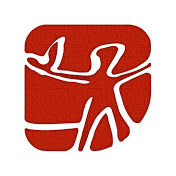
ISA’s main focus is the defence of social and collective rights and assets related to the environment, cultural heritage and peop...
Brazil
August 2018
5:40

ISA’s main focus is the defence of social and collective rights and assets related to the environment, cultural heritage and peop...
The Baniwa women of the Upper Negro River (AM) lead the production of their traditional pepper, the Baniwa Jiquitaia Pepper. Their strength was demonstrated in the inauguration of the Canadá Community House of Pepper, on the Ayari River, in May 2018. From the farming of the peppers to the labeling, filling and management of the […]
“Tamuaté-Aki” (We are fed up) is a campaign from Uma Gota no Oceano and the filmmaker Marcos Prado. The result was 4 million and a half emails that were sent by the population to the National Congress, claiming the right of indigenous peoples to land demarcation in Brazil. The campaign highlights the importance of indigenous […]
In an effort to reduce dependence on diesel, ISA, in partnership with the communities of the Xingu Indigenous Park, and the USP Energy and Environment Institute (IEE-USP), will bring solar energy generation systems to the region. 55 schools, 22 health posts and a further ten community points to support productive activities.
Brazil’s African slave descendants, the Quilombola, have fought a long and hard struggle for recognition. After the abolition of the slave trade they were left abandoned and ostracised, devoid of rights and outside of Brazilian mainstream society. But things are slowly changing amongst rural communities. In the 1988 constitution Brazil’s Quilombola were granted access to […]
The final day of the Free Land Camp 2018 was marked by a march against the continuing genocide suffered by indigenous peoples, where a large blood trail was left on the Esplanade of the Ministries to remind everyone that indigenous peoples still bleed.
In the Upper Xingu region, Brazilian Amazon, the agribusiness expansion has caused serious impact on the lives of indigenous peoples and local communities. One of the gravest consequences is the environmental and social changes that have impacted household livelihoods. The documentary follows the routines of young local leaders Anderson, Milene, Oreme and Tawa who unveil […]